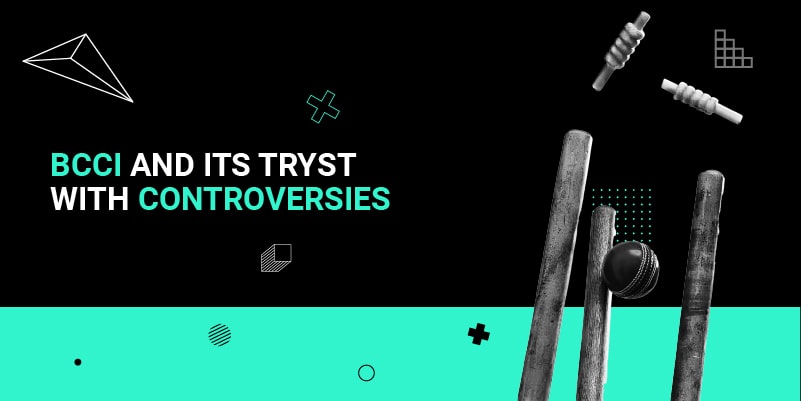The BCCI’s Tumultuous Journey Through Scandals and Triumphs

The Board of Control for Cricket in India (BCCI), as the wealthiest cricket board globally, wields immense power and influence in the realm of international cricket.
This financial and administrative giant not only stewards the Indian Premier League (IPL), a premier cricketing event that has redefined the sport’s commercial landscape but also oversees the career trajectories of India’s cricketers, who are among the best in the world.
However, with great power often comes great controversy. In this article, we explore some of the most significant controversies that have rocked the BCCI, shedding light on the complexities and challenges of managing a sport that is revered by billions.
The 2009 BCCI – Nimbus Broadcasting Rights Dispute
In 2009, a major legal tussle unfolded between the BCCI and Nimbus Communications over broadcasting rights. This conflict centered on Nimbus’s failure to meet its financial obligations under the contract, leading to BCCI invoking bank guarantees worth Rs. 1647 crore.
The Bombay High Court ruled in favor of BCCI, underlining the legal and financial ramifications of broadcasting agreements in sports. This case highlighted the challenges faced by sports organizations in managing large-scale broadcasting rights and the financial disputes that can arise from them.
The National Sports Development Bill and BCCI’s Autonomy
2011 was a pivotal year as the Indian Sports Ministry introduced the National Sports Development Bill, aiming to increase transparency and accountability in sports organizations by including them under the Right to Information Act. The BCCI resisted this bill, asserting its autonomy given that it does not receive government funding.
The ongoing debate around this bill reflects the tension between governmental oversight and the independence of sports bodies, illustrating the complex dynamics of sports administration in India.
BCCI vs. Shane Warne: The IPL Pitch Controversy of 2011
The controversy between Shane Warne, the iconic Australian spinner and then captain of Rajasthan Royals, and the BCCI in 2011, was another headline-maker. The dispute arose over the last-minute change of pitch for a crucial IPL match, which Warne alleged was influenced by N Srinivasan, then owner of Chennai Super Kings and a high-ranking BCCI official.
This incident brought to light the intricate politics within the IPL and raised questions about fairness and transparency in the league’s operational decisions.
The Termination of Kochi Tuskers Kerala from IPL
Also in 2011, the BCCI found itself embroiled in another controversy when it terminated the franchise agreement with Kochi Tuskers Kerala due to non-payment of franchise fees.
This abrupt decision caused considerable upheaval during the IPL season and highlighted the financial instabilities and contractual disputes that can plague major sporting leagues. The termination of KTK from IPL raised serious questions about the governance and financial management practices within the BCCI.
Spot-Fixing Scandal: The Dark Shadow Over Cricket
Perhaps one of the most damaging controversies was the 2013 spot-fixing scandal, where players and bookies were accused of manipulating specific events within IPL games for betting purposes.
This scandal tarnished the image of the IPL and cricket at large, leading to arrests and lifetime bans for involved players. The incident underscored the vulnerabilities of cricket to corrupt practices and the immense challenges sports authorities face in maintaining the integrity of the game.



